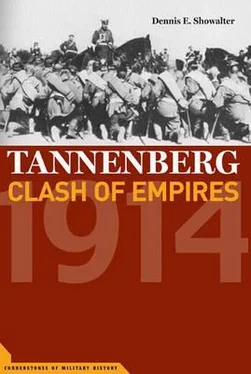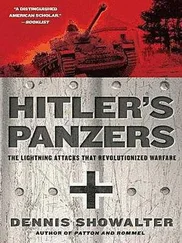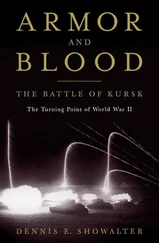An important aspect of this freedom was the search for a British connection. Holstein’s vision of such a relationship involved accord rather than alliance: specific action in common for common specific ends. Yet even this modest goal remained out of reach.Paul Kennedy has demonstrated that above all Germany’s rapid economic growth created a fundamental antagonism between the two powers that would have been difficult to overcome given the most conciliatory diplomatic behavior on both sides. Gregor Schollgen speaks of “ignorance,” of a young and inexperienced nation pursuing a tragic course in its relations with the older power, ultimately failing to recognize that its goals of Weltpolitik could best be achieved as Britain’s junior partner. Peter Winzen is more critical. He accuses Bülow, who became secretary of state for foreign affairs in 1897, of consistent bad faith, of sabotaging Anglo-German relations for the sake of a grand design that would ally Russia to Germany in the course of an Anglo-Russian war Bülow regarded as inevitable. 50
These approaches overlook the basic fact that Britain and Germany had no common enemy, no common concrete danger strong enough to bring them together. The enduring continental alliances, Austria and Germany, France and Russia, were essentially insurance policies against objective threats, geographic possibilities that remained constant whatever treaty relationships might exist. Britain and Germany had no equivalent situation. Without one their relationship was likely to remain at best alignment without alliance, connection without commitment.
Holstein was correct in reasoning that Britain’s interests, like Germany’s, were best served by sustaining the existing order. Where he failed was in overestimating the strength of the British Empire. Britain was not merely sated, but saturated. Appeasement seemed by far the wisest course. This approach is historically congenial to imperial powers in decline. It reflected as well the position of the bourgeois-conservative elites that dominated Britain, and demanded global grandeur with limited liability. 51
Toward whom should that appeasement be directed? Keith Wilson exaggerates when he speaks of Germany as “invented” to suit the role Britain needed to play in order to sustain its policies. 52Yet the weakness of the concrete points of friction, even the naval issue, between Britain and Germany does suggest that Britain’s commitment against Germany was a secondary, rather than a primary, fact of twentieth-century international relations. It was a by-product of the French and Russian ententes Britain needed to sustain her position as a world power. As such, it lay farther outside of German control than successive German governments were willing to concede. 53
In view of the continued failure of its British policies, German encouragement during the 1890s of Russia’s expansion in central Asia and towards the Pacific appeared almost brilliant in the first years of the new century. Russian advances in Korea and Manchuria generated resistance from Japan and increasing opposition from Britain, Japan’s ally since 1902. 54
Bülow, promoted from the foreign office to the chancellorship in 1900, was enthusiastic over a situation he regarded as an inviting opportunity for creative diplomacy. Bülow viewed international relations in a traditional context of alliances, balances of power, and national security. His concept of Weltpolitik was anything but a coherent program of economic or political imperialism. Depending on perspective, it can be described negatively, as the constant search for cheap successes at low risk or, positively, as the flexible exploration of a spectrum of options to solve long-standing general problems of international relations. To date the Franco-Russian alliance had been essentially a free ride for both partners. What might happen if a price tag suddenly appeared on the relationship? In Bülow’s opinion a German initiative, properly couched and timed, could mean re-establishing close relations with Russia at bargain-basement terms. The Russians seemed in no position to be selective. A Russo-German alliance might in turn draw France into its orbit—particularly in view of that country’s recent initiatives in Morocco. Germany’s interests there were significant, but not vital. They could be negotiated, even bartered. The Franco-Prussian War had been history for over three decades; times seemed propitious for dramatic changes in great-power relationships. 55
Bülow’s underlying attitude towards Russia had changed little since 1887. She was not a shambling giant with feet of clay—that status Bülow reserved for Austria—but a power whose attitudes and behavior held the keys to Europe’s stability. His policy depended heavily on Russian support to bring France to terms. But far from acting as the sophisticated mediator of interests and attitudes, the Russian government behaved more like a Luftmensch from the empire’s own shtetls. Themselves with nothing to trade, the Russian delegates to the First Moroccan Conference devoted all their energies to persuading Germany into concessions. The foreign ministry officially stated that Russia would stand by France should war over Morocco arise. With the French government firmly refusing to negotiate directly with Germany, with even Austria-Hungary pressing Germany to back down, Bülow faced a choice: fight or quit. Germany chose to quit, accepting one of the twentieth century’s most complete diplomatic defeats rather than risk a war that suddenly very few Germans seemed to want, no matter how belligerent their previous rhetoric might have been. And in April, 1906, Russia collected its payment—a new French loan on unusually favorable terms. 56
German restraint in 1905 is frequently described as at best a temporary reflection of current shortcomings in armament and equipment, an anomaly in a political-military strategy essentially offensive in nature. The strategy is in turn most often presented as reflecting both extensive geopolitical aims and an institutional bias in favor of the offensive, which was considered to express most fully the values at the heart of the German military system: courage, decisiveness, initiative, and similar caste-influenced attitudes. Germany’s sudden backdown did owe much to the fact that her policy during the crisis had been no more than a set of diplomatic initiatives. Coordination and consultation between the foreign office and the general staff was minimal. Yet for all of his rhetoric about the desirability of war with France in the context of current Russian weakness, even Chief of Staff Alfred von Schlieffen seemed reluctant to push his arguments to the limit in 1905. 57
This caution was not specific to the situation. Germany’s mainstream military theorists had moved a long way from Waldersee’s ebullient advocacy of preventive war. Since the turn of the century they had become increasingly dubious about their country’s prospects. For all of Tirpitz’s elaborate building programs, naval planning against likely combinations of enemies more and more assumed the nature of the Mad Hatter’s tea party in Alice in Wonderland. The army’s consideration of invading Denmark and Holland, Schlieffen’s eventual decision to attack Belgium, reflected a sense of weakness rather than strength, a fear that these small states would become sally-ports for future enemies, and a corresponding search for compensating advantages however ephemeral and costly these might be in the long run. As late as November, 1909, the general staff asked the navy to evaluate which Dutch harbors would be suitable for a major British landing. 58
This pessimism reflected Germany’s increasingly unfavorable diplomatic situation. It responded to the domestic strains engendered by increased military preparation: the social consequences of enlarging the army and the financial burdens of expanding the navy. At the cutting edge, however, it was a function of professional anxiety at two levels. Schlieffen’s growing commitment to an all-out offensive against France represented at least as much a turn away from the east as a focus on the west. In a quarter-century’s alliance between Germany and Austria, the Habsburg army had developed an image and a self-image as a military Avis—not exactly a poor relation, but an attendant lord, suited to start a progress and swell a scene or two but able to do nothing the Germans could not do better. In Schlieffen’s opinion the Austrian army could not even protect its own state from a determined Russian offensive.
Читать дальше












